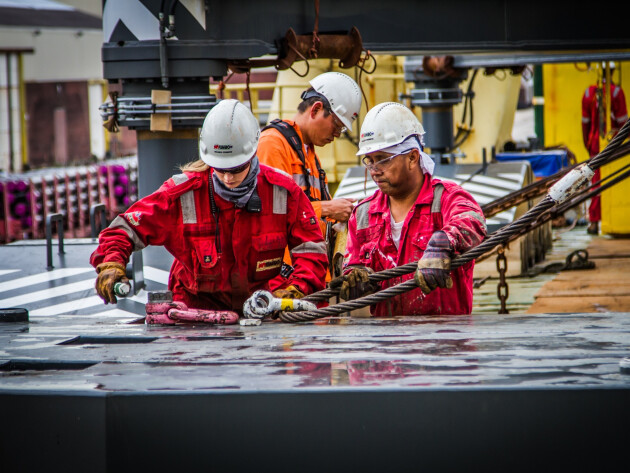
Minimum Wage
The modernization of the Minimum Wage and Minimum Holiday Allowance Act (WML) should provide clarity for both the industry and seafarers. Social partners need to resume discussions on this, with consideration for the international nature of seafaring.
What is the issue?
For a long time, the Dutch government's clear stance was that the Dutch Minimum Wage Act The Minimum Wage Act establishes the minimum salary that an employer is required to pay an employee. This minimum wage depends on the employee's age and working hours. The purpose of the law is to ensure that everyone receives a fair wage for their work, sufficient to live on. did not apply to Dutch-flagged seagoing vessels. This provided a crucial reference point for shipowners, ensuring a level playing field in international shipping. However, a 2019 ruling by the Council of State has challenged this established position.
Before the ruling, the seafarer's country of residence determined whether or not the Minimum Wage Act was applicable - a principle known as the country of residence principle The country of residence principle means that when determining the wage level for non-EU seafarers, consideration is given to the economic situation of their country of residence. These seafarers do not come into contact with the Dutch standard of living. They work and reside onboard, and during their leave periods, they stay in their home country outside the EU. . Despite this long-standing approach, the Council of State introduced a new concept in a case involving harbor tugs: the home port concept The home port concept means that the port where a ship is registered serves as the basis for its legal status. This port determines which laws and regulations apply to the ship, such as safety requirements and tax obligations. The ship must comply with the regulations of the flag state. . Under this new principle, the home port of the vessel, rather than the seafarer's country of residence, determines the applicability of the Minimum Wage Act.
This ruling marked the beginning of consultations between social partners and the relevant ministries, Social Affairs and Employment The SZW, or the Ministry of Social Affairs and Employment, is a Dutch government agency. It focuses on promoting employment, ensuring social security, and improving working conditions. The ministry develops policies to support the labor market and ensure social protection for citizens. and Infrastructure and Water Management The Dutch Ministry of Infrastructure and Water Management (IenW) is working towards a livable, accessible, and safe Netherlands. The ministry focuses on transportation, water management, climate adaptation, and environmental quality. , on how to apply the Minimum Wage Act to Dutch-flagged vessels engaged in international shipping.

The court case
The court case was about an administrative fine for a shipowner of seven sea tugs. The Netherlands Labour Authority had imposed that fine for not applying the Minimum Wage Act for non-EU seafarers. The Council of State vindicated the Netherlands Labour Authority on the basis of practical ‘points of reference’. Among other things, the flag, registration of the ship, place of embarkation and provisioning meant that these sea tugs had their home port in IJmuiden, and the Minimum Wage Act applied.
How to solve this issue?
By introducing the 'home port concept' in this particular case, the Council of State did not resolve the issue regarding the scope of the Minimum Wage Act.
This is because the wages of non-EU seafarers on Dutch-flagged seagoing vessels are still determined by the country of residence principle. The KVNR believes that the country of residence principle should remain the primary guiding principle wherever possible. It ensures an international level playing field for Dutch shipowners and provides equal pay for seafarers from countries with diverse economic standards.
In this way, seafarers are always entitled to at least the international minimum wage set by the International Labour Organisation The International Labour Organization is a part of the United Nations in Geneva that establishes binding international treaties in the field of labor. The ILO includes employers' organizations, trade unions, and governments. . This so-called ILO minimum serves as a guarantee for the legal rights of international seafarers.
State of play - 1 November 2024
Following the ruling by the Council of State and considering the introduction of the home port principle, the KVNR and Nautilus International Nautilus International is a trade union that represents maritime professionals, including seafarers, shipmasters, and maritime workers. , as social partners, have been asked by the ministries of Infrastructure and Water Management and Social Affairs and Employment to provide their advice on the applicability of the Minimum Wage Act.
The KVNR recognizes the significance of this advice, as reliance on the home port principle instead of the country of residence principle could lead to Minimum Wage Act claims by non-EU seafarers living outside the Netherlands. This poses a threat to the future of the Dutch shipping industry, Dutch employment, and the equal pay system. Many seagoing vessels under Dutch jurisdiction could argue that the Netherlands is their home port, despite frequently operating in international waters.
Since 2019, the KVNR and Nautilus have held several consultations regarding the Minimum Wage Act. In spring 2020, they presented a joint viewpoint to the then ministers of Infrastructure and Water Management and Social Affairs and Employment, along with an outline of minimum wage principles that a modified Minimum Wage Act should adhere to.
After that presentation, progress stalled due to various circumstances. However, the collective bargaining parties in merchant shipping provided clarity as early as 1 January 2020, by agreeing in collective bargaining agreements on when the Minimum Wage Act would apply to non-EU seafarers on board seagoing vessels and the corresponding remuneration. Discussions have since resumed in August 2024, and we will continue to update this web page regarding the Minimum Wage Act.
Expert & press contact


